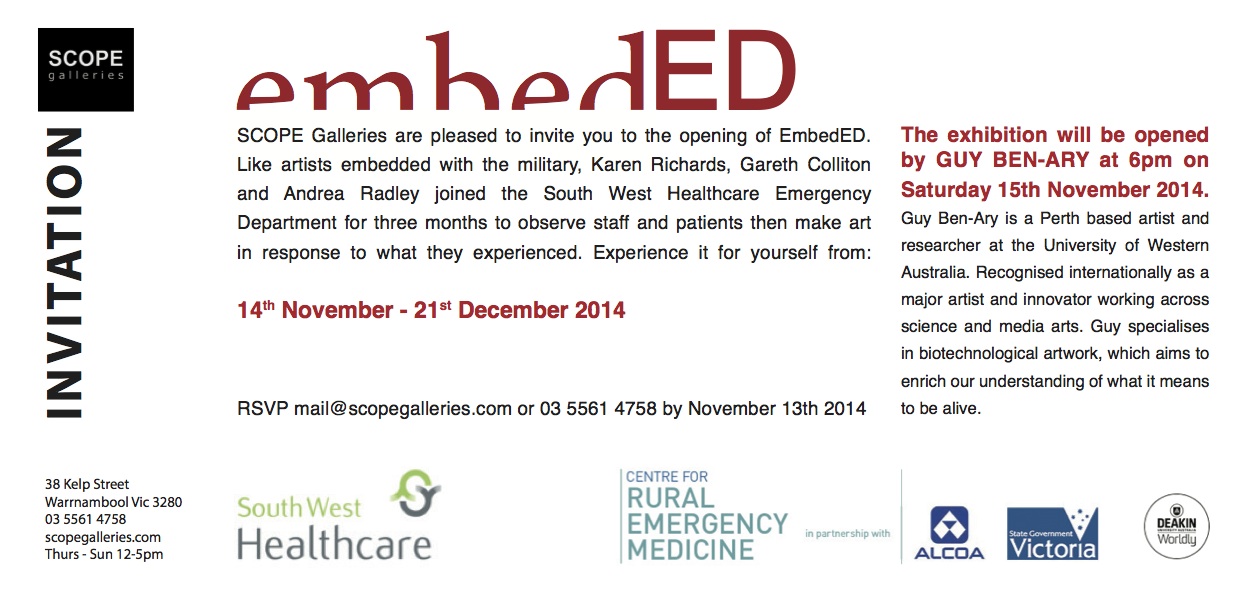 CREM is delighted to announce that our director, Dr Timothy Baker, has been awarded the South West Regional Achiever Award, 2016. This award is a great honour and reflects the contribution, not only of Dr Baker personally but of many other people and organisations who contribute to rural emergency medicine in our region. The staff of CREM research issues of importance and help spread new ideas to clinicians in small towns. Warrnambool and Portland emergency departments, and the surrounding Urgent Care Centres continue to incorporate new models of care to provide the best outcomes for their patients.
CREM is delighted to announce that our director, Dr Timothy Baker, has been awarded the South West Regional Achiever Award, 2016. This award is a great honour and reflects the contribution, not only of Dr Baker personally but of many other people and organisations who contribute to rural emergency medicine in our region. The staff of CREM research issues of importance and help spread new ideas to clinicians in small towns. Warrnambool and Portland emergency departments, and the surrounding Urgent Care Centres continue to incorporate new models of care to provide the best outcomes for their patients.
CREM appreciates the ongoing funding and commitment of Alcoa Australia, the Victorian Department of Health and Human Services, and Deakin University to the South West Region. CREM would like to thank the sponsors of this award, South West TAFE and Deakin University, for recognising and honouring those who work for their communities in the South West Region of Victoria. Dr Baker would like to congratulate the other finalists and nominees in this category, who have all contributed greatly to the local communities, making our region such a wonderful place to live. Thanks to Prime 7, The Weekly Times and the Bank Of Melbourne, the major sponsors of these awards.


